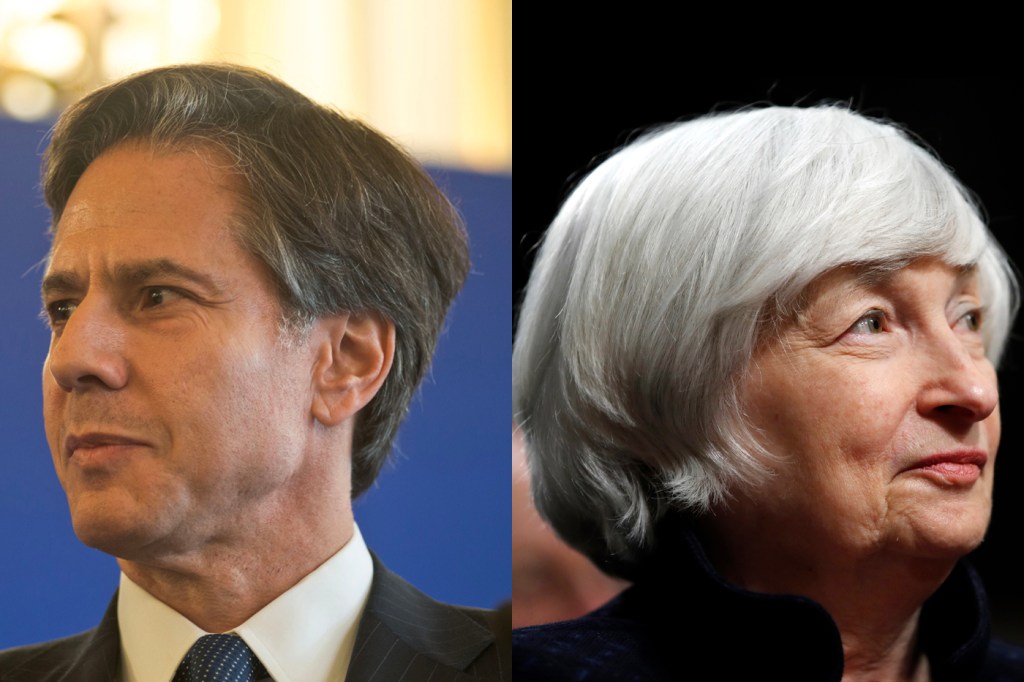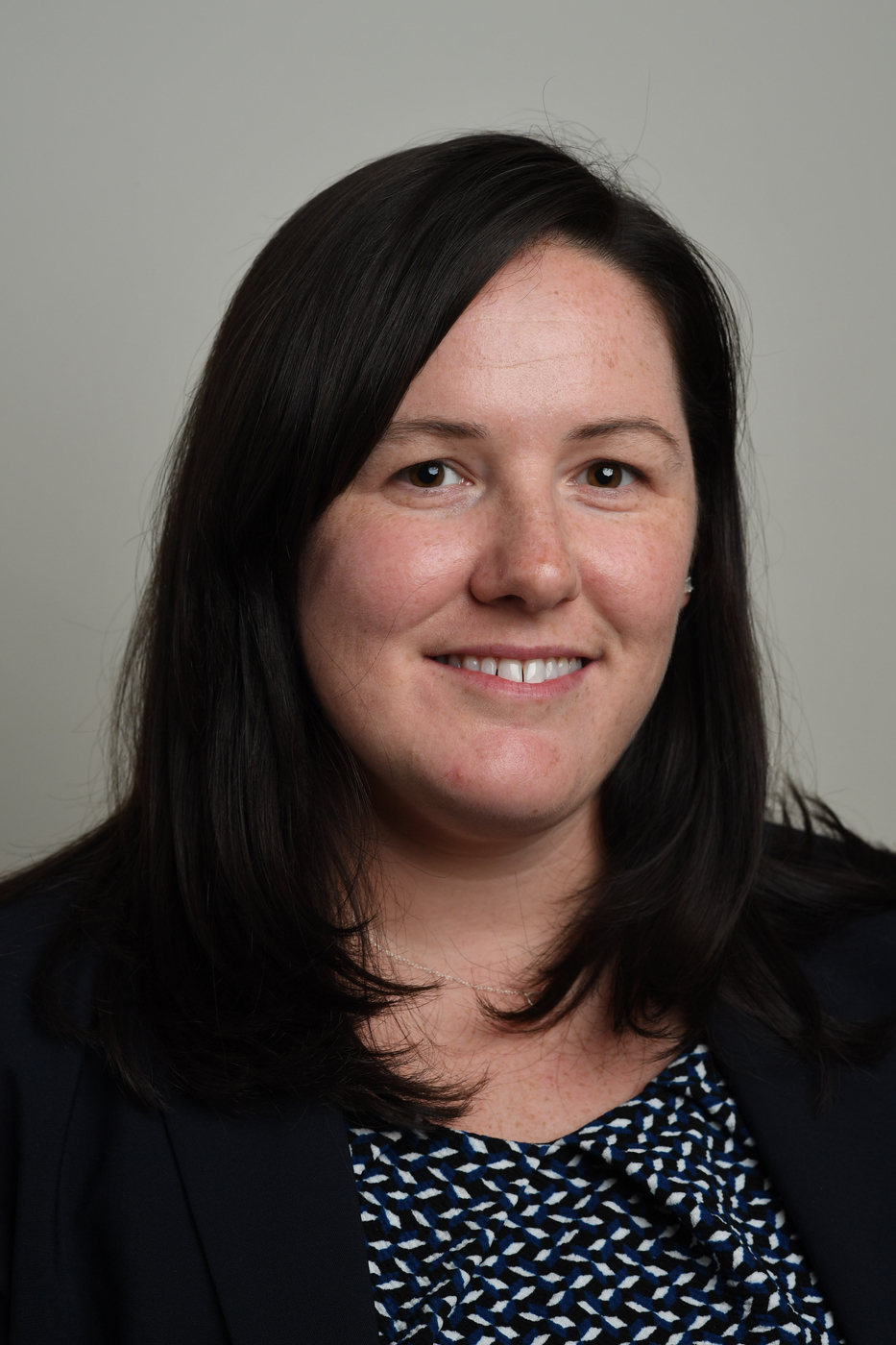Biden taps Tony Blinken, Janet Yellen for key cabinet positions

President-elect Joe Biden’s early cabinet picks signal that he prizes expertise and experience in the people who will comprise his inner circle of advisers, even if they may disagree with him from time to time, according to Northeastern professors.
Tony Blinken, nominated to run the State Department, is a trusted, longtime aide who has known Biden for decades. He previously served as the number two in the department during the Obama administration. As the United States’ chief diplomat, he will have Biden’s ear on all matters pertaining to foreign policy.
Rounding out the upper levels of his foreign policy team, Biden tapped another close aide, Jake Sullivan, as national security adviser at the White House. He was the head of policy planning in the State Department under Hillary Clinton, making him one of her closest advisers.
Filling the job of United Nations ambassador is former diplomat Linda Thomas-Greenfield, who served as U.S. envoy to Liberia and had overseas postings in Switzerland, Kenya, Pakistan, and other countries.

Julie Garey, an assistant teaching professor of political science who specializes in international relations and U.S. foreign policy. Photo by Matthew Modoono/Northeastern University
Policy-wise, choosing Blinken sends a message to the international community that the Biden administration is placing a high premium on multilateralism in terms of diplomacy and the military, says Julie Garey, an assistant teaching professor of political science who specializes in international relations and U.S. foreign policy.
Biden and Blinken largely see eye-to-eye on most issues, but Blinken has broken ranks when he believes it is necessary to do so, she adds. In almost all those cases, Blinken advocated a more interventionist position, stepping into global crises where he thought it necessary.
“Some will raise concern with Blinken’s interventionist disposition and worry that he will continue policies that have not served the U.S. well over the last two decades,” Garey says. “Others will look at his firm belief in multilateralism and find his commitment to rebuilding the U.S.’s international relationships comforting.”
Critics point to Blinken’s role in many of the interventions now criticized by those on the political left, including Biden’s Iraq war vote and subsequent defense of that vote when the president-elect was a senator. He also helped design Biden’s proposal to partition Iraq and was partly responsible for President Obama’s decision to arm the Syrian rebels, according to Nick Beauchamp, assistant professor of political science.
While some members of Biden’s newly formed foreign policy team may be disliked by the left, “they may also be considered the best the left is likely to get, at least compared to the more right-leaning equivalents during the Bush and Trump administrations,” Beauchamp says.

Professor Bob Triest. Photo by Matthew Modoono/Northeastern University
Blinken will be responsible for signaling the Biden administration’s internationalist foreign policy strategy to the global community, Garey explains. The president-elect’s position is that the United States needs to re-connect with international partners. This would include restoring America’s role in the World Health Organization after President Trump’s withdrawal, rejoining the Paris climate accord, and strengthening its commitment to the United Nations.
“I anticipate the focus on China and U.S.-Sino relations will persist, but with a reassurance to European allies that the U.S. is not abandoning Europe,” Garey added. “I also anticipate Blinken will have to deal with the repercussions of President Trump’s recent announcement of withdrawing troops from Afghanistan, Iraq, and Somalia. Whether or not this plan is executed, it creates concerns among America’s allies regarding its long term commitment and strategy.”
In another major personnel announcement, Biden tapped former central banker Janet Yellen to be Treasury secretary. She will have an influential voice on a range of economic issues and oversee a department that performs many important functions, including collecting taxes, printing money, and paying the country’s bills.
Yellen is known and widely respected by government officials and key players in financial markets both in the U.S. and abroad, says Bob Triest, chairman of Northeastern’s economics department and a former vice president at the Federal Reserve Bank of Boston.

Nicholas Beauchamp assistant professor of political science at Northeastern. Photo by Matthew Modoono/Northeastern University
“The message that Biden is sending with her appointment is that he values competence, experience, and sound judgment over ideology or party connections,” he says.
Biden is also signaling that he recognizes that the Treasury secretary will need to work well with the Federal Reserve. Yellen and current Fed chairman Jay Powell were formerly colleagues on the Federal Reserve Board of Governors and respect each other, Triest adds.
Yellen began her career in academia before President Clinton appointed her to head the White House Council of Economic Advisers, which offers the nation’s chief executive advice on domestic and international economic policy. After serving under President Obama as the first woman to lead the Federal Reserve, she left government in 2018 when President Trump declined to reappoint her to a second term.
Yellen is considered an expert on unemployment, an advantage in light of the nation’s high 6.9 percent unemployment rate during the COVID-19 pandemic.
Her most pressing priority will be using fiscal policy to help lift up the economy, Triest says. Having led the Federal Reserve during the slow recovery from the Great Recession, Yellen is well aware of the downside risk to economic activity and job creation from insufficiently expansionary fiscal policy.
She also recognizes the importance of longer term policy issues, such as economic inequality and climate change, that the Treasury can address through tax policy. Triest says she is progressive in recognizing the importance of these problems, but very mainstream in the policies that she is likely to favor to achieve those goals.
In an interview with Reuters before the Biden announcement, Yellen endorsed a carbon tax as a way to reduce greenhouse gas emissions, saying that she sees “a growing recognition on both sides of the aisle that climate change is a very serious concern and that action needs to occur.”
Yellen, Blinken, and other nominees must still be approved by the Senate, regardless of which party controls the chamber. The Senate majority will be determined after a pair of races in Georgia in January.
For media inquiries, please contact media@northeastern.edu.





